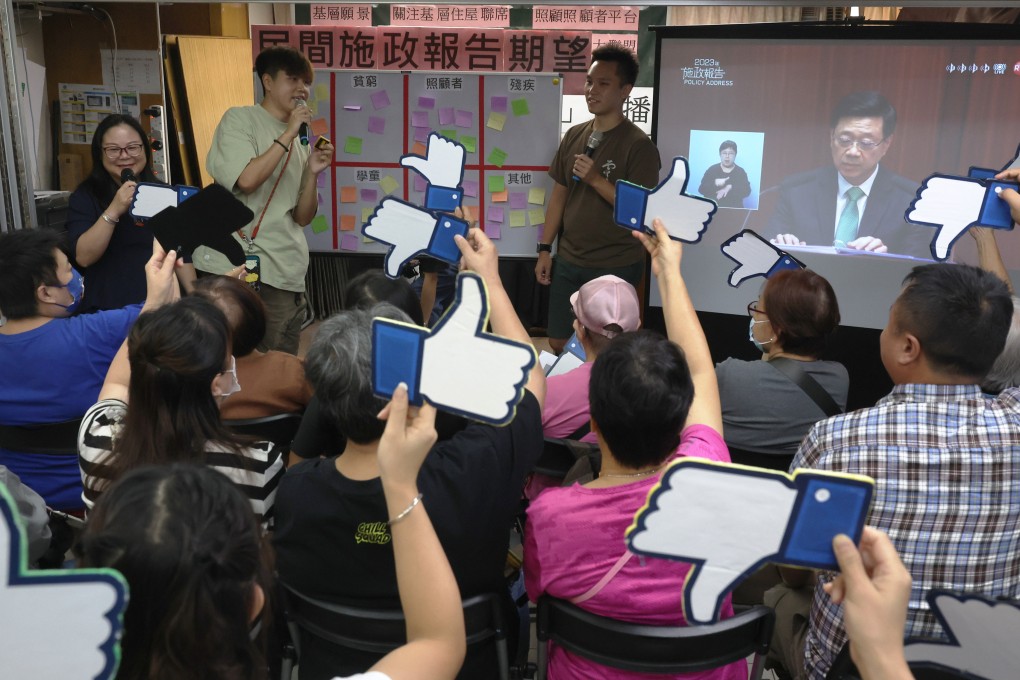Advertisement
Opinion | There can be no unity in Hong Kong if we cannot embrace disagreement
- John Lee sowed the seeds of divide in his policy address in singling out those with ‘negativity’ – but writing them off blinds us to what plagues us as a community
- Amid growing political apathy, for a government calling on people to unite, pushing an ‘us vs them’ rhetoric is a recipe for disaster
Reading Time:3 minutes
Why you can trust SCMP
12

Chief Executive John Lee Ka-chiu’s policy address took more than three hours and covered a lot of ground.
What caught the most attention was the HK$20,000 (US$2,555) cash bonus for each newborn – unprecedented and a nice gesture. Another headline was the easing of property cooling measures that have been in place for a decade, though this was more of an expectation than a highlight. Clearly, the government has its work cut out for it.
But what jumped out was Lee’s effort in rallying the people of Hong Kong and bringing them into the fold. From the start, he emphasised how he went among the community, with consultation sessions and district visits. He called it “a policy address for each and every one of us”. It is a line he has been repeating to the media.
Advertisement
There were so many policy initiatives unveiled that Simon Lee, co-director of the International Business and Chinese Enterprise programme at the Chinese University of Hong Kong, compared the blueprint to “a buffet dinner”.
And in terms of how wide John Lee cast the net with his policy initiatives, he did cover “everyone” and more, including foreign talent and companies that would bring in more Hong Kong residents-to-be.
Advertisement
Unfortunately, all the good talk about unity and solidarity, and the pep talk – the “faith” he said he had in the people of Hong Kong – was ruined by the “us vs them” rhetoric in the end. In his concluding remarks, Lee said the “negativity” harboured by some have made the good people of Hong Kong “frustrated”.
Advertisement
Select Voice
Select Speed
1.00x
